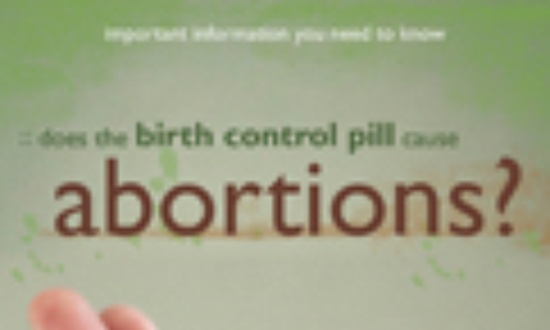What is your opinion of the progestin only pill (mini-pill) as a form of birth control while nursing?
My ob-gyn suggested the progestin only pill to me and I raised with him my ethical concerns regarding the way it changed the lining of the uterus, and the possible abortive effect it might have on any conceived child. He told me he would recommend it as it was progestin (the hormone that sustains a pregnancy), and there was actually a higher chance of me getting pregnant while taking it as opposed to the combination pill because it didn't have an abortive effect on any conceived child. He went so far as to say that it had in fact been prescribed to women who had certain infertility issues because it helped them to have enough progestin in their bodies to sustain a pregnancy. He said that while solely breastfeeding, the progestin only pill simply sustained the conditions already in place in a woman's body due to the nursing. Instead of an effectiveness of 85%, the regulated levels of progestin could be up to 93% effective. He did warn me that it was only suitable to take while I was nursing, and he was only happy to give me a prescription for as long as I intended to breastfeed. He also told me that as soon as I stopped nursing, I was to stop taking the mini-pill. The prescription he gave me was for Micronor and the generic for it is Nora-Be.
I am one of the physicians on the Physicians Resource Council (PRC) at Focus on the Family. I also do not prescribe oral “contraceptive” pills (OCPs) or “birth control” pills (BCPs) for the purpose of preventing pregnancy for the very reasons you mention.
At the PRC we discussed the potential abortifacient properties of OCPs/BCPs for more than three years. We examined all of the literature available to answer the concerns you raise. The bottom line is that we could not develop a clear consensus. One or two physicians felt that these pills never cause an abortion in any woman at any time, some felt that they did rarely (if ever), some felt that they clearly could and would in at least some women in some cycles. For those of us in this latter group, the frequency with which this occurs is clearly going to vary depending on the amount, potency and mix of hormones.
At the same time, of all the pills available, the so-called mini-pill probably causes this to happen more than most (if not all) others. The reason is that it is the least reliable in suppressing ovulation. Therefore, its mechanism of action is more likely to be post-ovulatory—that is, abortifacient. In addition, some of the logic expressed by your physician seems to be mixing issues.
Specifically, taking progesterone (in a progesterone deficient state) to support an early gestation is clearly different than taking a pill on a cyclic basis with withdrawal from the active hormone for 7 days each month. Withdrawing exogenous hormone for 7 days (as happens with the mini-pill) may well cause withdrawal bleeding which really represents sloughing of the lining of the womb. Thus, the mini-pill does not suppress ovulation reliably and often “works” by a post-ovulation effect—either thinning and/or causing a sloughing of the lining of the womb.
In fact, at least two OB-Gyns on the PRC (who are not particularly concerned about birth control pills in general) absolutely agree that the mini-pill is more likely to allow breakthrough ovulation; thus, they will NOT prescribe the mini-pill to postpartum mothers (or to anyone else) for “contraceptive” purposes.
For more information on the birth control pill, see Randy Alcorn’s book Does the Birth Control Pill Cause Abortions?





